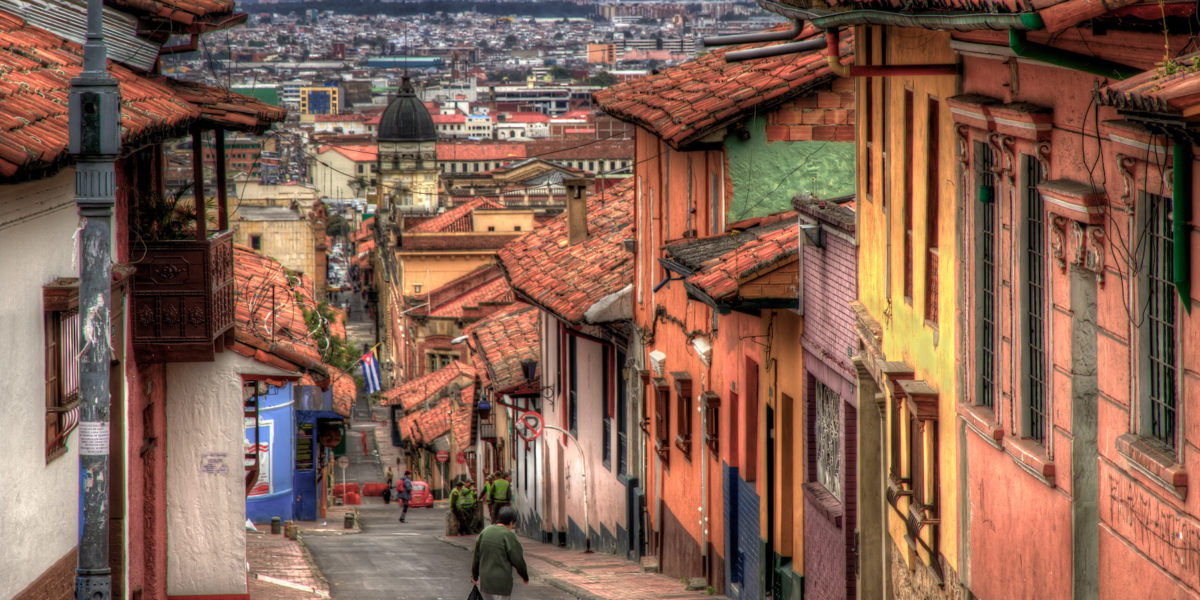Common Frontiers, The Colombian Working Group, and the Canada Colombia Solidarity Committee sent a delegation to observe the 2022 Colombian presidential election. The vote on May 29 saw the field of presidential candidates narrowed down to two. Progressive candidate Gustavo Petro received 40 per cent of the vote. Right-wing populist Rodolfo Hernandez received 28 per cent of the vote. A runoff election between the two candidates will be held on June 19.
Hernandez has a history of making controversial statements including stating that he believed that Adolf Hitler was a “great thinker.”
#Colombia Presidential election
Rodolfo Hernandez (RH), finalist in the second round
(in Spanish):
(RH) “I am a follower of a great German thinker”.
Journalist >Which one is he?
(RH) “His name is Adolf Hitler”.
(and other mind-blowing declarations and situations)
😱 https://t.co/Lo9MOI6npT— Carlos MORENO (@CarlosMorenoFr) May 29, 2022
Common Frontiers preliminary impression on Colombia’s 2022 presidential elections results. The mission visited the following polling stations in Buenaventura; Tenorio Paloseco, Lleras. Fundación Social Ana Victoria, Instituto Femenino la Anunciacion, Juan José Rondón Barrio Juan XXIII, Antonio Nariño, Gamboa, La Gloria and Los Granadinos.
- The elections took place in a peaceful and tranquil manner. There were no reports of widespread violence on the day of voting.
- We observed that voters had access to polling stations unimpeded. In Buenaventura, we did not observe anything abnormal in any of the voting centers we visited.
- There was a higher than normal turn out which means people came out to the polls. It’s clear that many more Colombians participated in this election than have in previous elections.
- The denial of entry to international observers is highly concerning. International observers are critical to fair and transparent elections; detaining and denying them entry is contrary to international norms and contributes to the loss of confidence in fair and transparent elections.
- Prior to election day, we heard serious concerns from community organizations:
I. Across the political spectrum, people do not have confidence in the electoral system because of electoral fraud in the past.
II. There has been a high level of state violence in the country during the mass mobilizations of the previous years creating a climate of fear for citizens in terms of freely expressing their political affiliations.
- On election day, there were several reports of voting tables not having witnesses. We ourselves heard from several people who reported to us about the lack of witnesses at many tables. This is partly due to problems in the registration process for witnesses.
- A high level of threats and intimidation toward political candidates during the electoral period is highly concerning.
- We heard reports that there have been companies coercing and intimidating employees to vote for certain candidates.
- The intervention of the Attorney general’s office in several instances in the removal of elected representatives, such as the suspension of Daniel Quintero, the mayor of Medellin, is concerning and undermines confidence in the electoral process.
- Many community organizations we met expressed concern about the fact that several Indigenous and Afro- Colombian communities could not vote due to displacement. One of these communities, Wounaan Nonan whom we met with in Buenaventura, was displaced in the past three months from Guayacan Santa Rosa and Valledupar.
Recommendations:
- The international community must continue to pressure the Colombian Government to hold fair and transparent elections.
- The Colombian government must allow all international observers to participate in monitoring the electoral process without any impediments.
- The Colombian government must end the use of excessive and disproportionate force against peaceful mobilizations and displays of support for particular political candidates.
- The Colombian Government should ensure the safety of political candidates. Candidates should not face intimidation and/or death threats.
- The President and Armed forces need to ensure the safety of candidates by refraining from making public statements against candidates that may open space for intimidation and/or violence against particular candidates.
- The government should implement a minimum 12-hour voting period. The current voting period is 8 hours does not allow for sufficient popular participation. Voters who are already in the voting line at the time of the closing of polls should be allowed to vote. This is a common practice in many countries.
- The government should ensure an appropriate audit or scrutiny of the elections software by all political parties. We met with representatives of political parties who shared concerns and stories of specific irregularities regarding the diverse software being used in the electoral process.
Delegation members: Dr. Terry Gibbs, Karen Jarrett, Dr. Timothy Bood, Jase Tanner, Julia Emma Zaldua, and Raúl Burbano
The mission will provide a more detailed report in the coming weeks.



